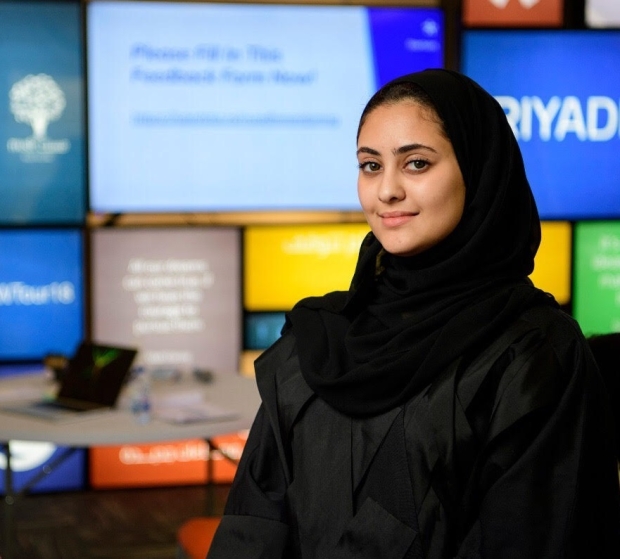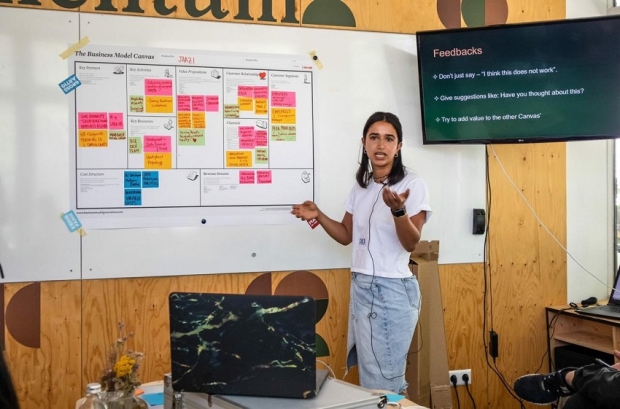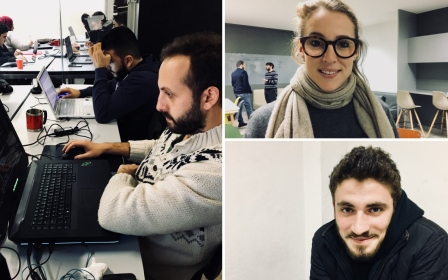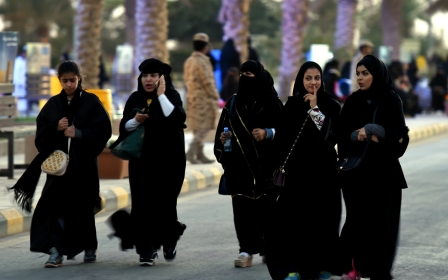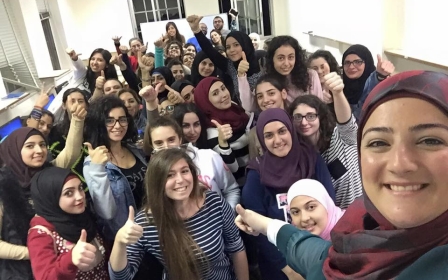The 'big push' to Saudi women: 'We are creating entrepreneurs'
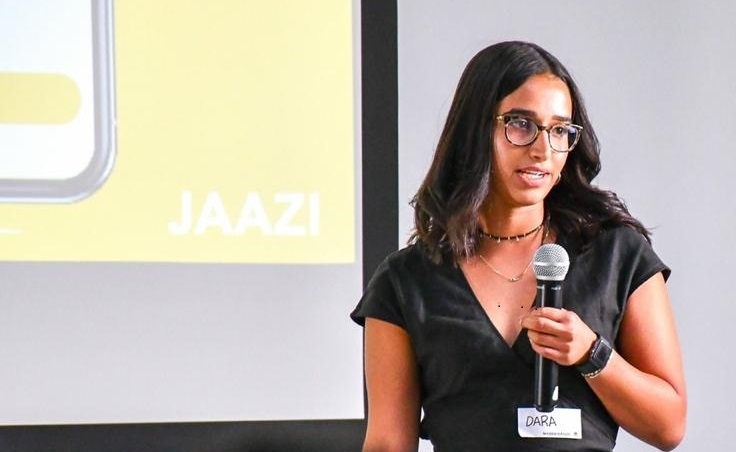
At just 20 years of age, Nouf Alsaleem is a Saudi entrepreneur. Her company, Mathaqi, a homemade food delivery service, was recently ranked 24 on a Forbes list of 60 women-led start-ups that are shaking up the tech industry across the globe.
Born and raised in Riyadh, Alsaleem is currently studying marketing and business management at King Saud University. With still a year left for her to finish her studies and graduate, her company is already a success and plans to expand it are in the works.
There weren’t many women who had their own businesses in Saudi Arabia but things have changed a lot in the past 10 years- Nouf Alsaleem
Mathaqi, which is based in Riyadh, works with around 100 mostly female Saudi nationals who make a variety of local and international dishes from different culinary traditions such as Chinese, Indian and Italian food.
The idea of an online food service and app developed after she noticed the hardships low-income families are facing and how social media was being widely used by Saudi businesses to market their products.
Launched in early 2017, Alsaleem says they now have more than 5,000 customers on their database with 20,000 food orders already having been placed.
“We are creating entrepreneurs. There was a chef working with us who was earning an income of around 7000-8000 SAR a month [approximately $2,000]. A year after being on board with Mathaqi, she had earned enough to open her own business.
“We are now looking to open a central kitchen so chefs can cook in bulk.”
“There weren’t many women who had their own businesses in Saudi Arabia but things have changed a lot in the past 10 years. There are many female start-ups in Saudi Arabia in fields such as food, fashion, technology and beauty,” she said.
The Womentum Accelerator
Mathaqi was recently selected for an entrepreneurial programme run by Womena, a Dubai-based for-profit organisation.
The start-up is among nine female-led companies chosen for their Womentum Accelerator initiative, an eight-month programme that involves a boot camp in Berlin and mentoring in a number of areas such as business models, financial planning, pitching and branding. The programme ends with a two-week boot camp in Dubai in October that coincides with GITEX, the region’s largest tech event.
When looking at the employment sector in the Gulf, the 25-year-old noticed that despite the job opportunities available, there seemed to be a high level of employee dissatisfaction among her peers.
“It was an issue that truly resonated with me. With millennials flooding into the Middle East workforce and a push for nationalised labour, I realised that disengagement was only getting worse and we needed to address it in order to have sustainable employment and economic development,” she said.
Getting your foot in the door is easy enough, but once you are there, it’s definitely a challenge trying to prove yourself. You learn to let the product and the solution speak for itself, and not be taken on face value as a woman in the region
- Dara Alsulayman
After graduating with a BA in Italian and French Language and Literature at Washington’s Georgetown University three years ago, Alsulayman gained experience in the business sector by working in marketing. Last year, she began an MA in Technology Entrepreneurship at London’s UCL, where she began developing her idea for a solo start-up.
“Many employees feel disengaged and under-recognised. They are not satisfied with the work they are doing and they don’t necessarily have a good relationship with their peers or their colleagues. This results in employees showing up less at work and when they do, [there is] a lack of productivity.
"What this means for companies is that they pay incredibly high amounts in areas like recruitment and training costs.”
Alsulayman is now working to address this issue with Jaazi, Arabic for "reward". Through a mobile phone app, which will launch at the beginning of 2019, employees will be asked weekly questions around issues such as how they feel about their workplace, or peer and employee relationships, and whether or not they feel they are being offered enough opportunities and recognition.
As a reward for answering the questions, employees will receive perks and discounts in areas such as health and wellbeing, or retail and childcare. Responses are anonymous and are analysed through the Jaazi platform and summarised for the employer.
“What Jaazi is trying to do is own that entire loop. It asks the questions, then that feeds into a real-time dashboard to which an employer has access at any given point.”
Her vision is to see the company transform the Middle East work culture.
“We want to bring a sense of accountability to the workplace,” she said. “In the Middle East, we struggle with enforcing and maintaining a culture of transparency, respect and empathy. So for me, bringing accountability to the employer is something that is particularly important.”
Alsulayman says she has been surprised by how much of a "big push" there is in the region to empower female entrepreneurs.
“Having said that, getting your foot in the door is easy enough, but once you are there, it’s definitely a challenge trying to prove yourself. You learn to let the product and the solution speak for itself, and not be taken on face value as a woman in the region.”
New MEE newsletter: Jerusalem Dispatch
Sign up to get the latest insights and analysis on Israel-Palestine, alongside Turkey Unpacked and other MEE newsletters
Middle East Eye delivers independent and unrivalled coverage and analysis of the Middle East, North Africa and beyond. To learn more about republishing this content and the associated fees, please fill out this form. More about MEE can be found here.


